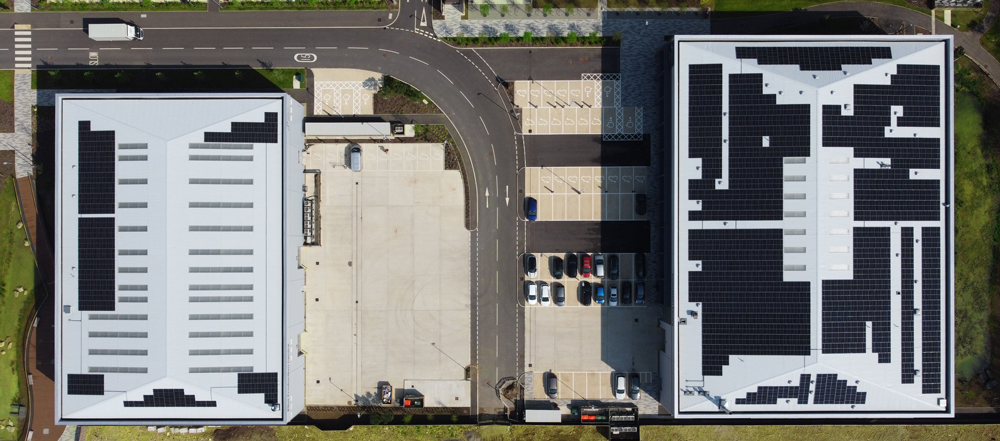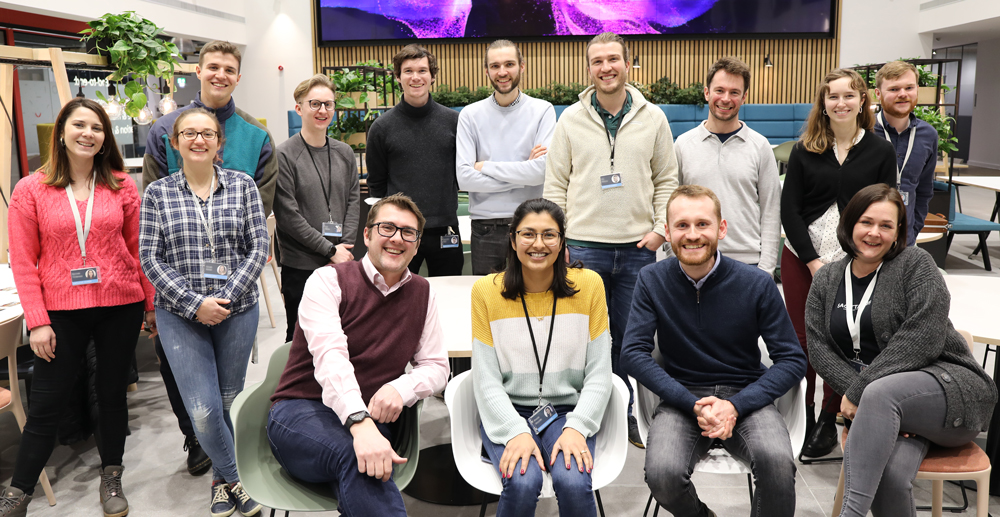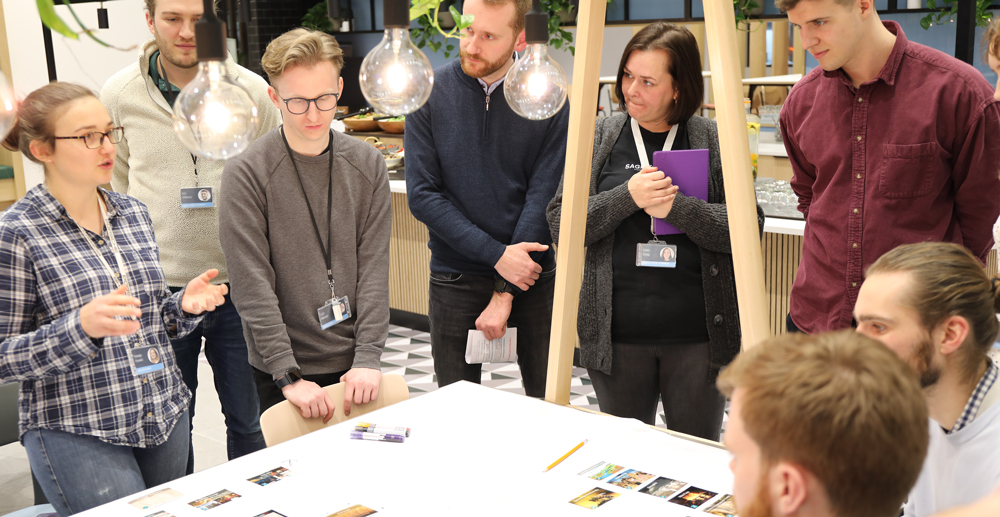Are we there yet? An honest progress report on our environmental sustainability
on LinkedIn:
“We’re all on a mission to achieve sustainability, working together to build a better business for people and planet”. While it may be true, statements like this don’t offer much insight into what we’re actually doing about our environmental impact. Instead, we’d like to provide an honest assessment of where we are now, what actions we’ve taken so far, and where we’re focusing our efforts in the future.
Sustainability communications are often full of cliché. In their excellent research report ‘Words that work’, creative communications consultancy Radley Yeldar analyzed the websites of 50 of the Forbes 100 most valuable brands and found the same words and phrases repeatedly cropping up. One of the most popular was the notion of a ‘sustainability journey’.
We can see how this happens – in fact, in the first draft of this article, we followed this same path. We want to talk about the progress we’ve made, which we’re proud of, but we know we’ve got a long way to go. We’ve got plans that we want to share – how do we communicate this process while it’s happening? There’s an obvious metaphor!
Part of the reason brands lapse into cliché, says Radley Yeldar, is fear of criticism if they’re brutally honest. So, we’ll try to take their advice, and be brave. Here goes.
An honest assessment
CDP is an Employee-Owned company. A little over a year ago, a group of employee-owners, supported by the management team, started an initiative to measure our performance against the B Impact Assessment, a widely used framework for all-round sustainability impact. Overall, we were very happy with how we measured up – many of the policies, actions and outcomes the assessment checks for were already established.
However, one of the reasons to go through this process was to identify any gaps in our performance. There was one area we decided to focus on, because frankly it was a little behind many other parts of the assessment – our work to improve our environmental sustainability.
What makes us want to improve?
Beyond a desire to have the most positive impact we can, there were three compelling reasons for us to take action:
- We’re delighted that more and more of the global brands we work with are committing to ambitious environmental sustainability targets – we want to help them achieve these goals and give them the confidence that we are just as committed to having a positive environmental impact.
- We work hard to reflect the needs and priorities of our employee-owners – our only shareholder and biggest asset. Surveys and engagement events have made clear that environmental sustainability is important to them.
- We have recently transitioned to a ‘large’ company under UK law, which entails new reporting requirements – the perfect time, therefore, to embed new measurement and reporting systems across the company.
Making a change through our client work
There are two ways that we can have an impact on the environment – through our business operations, and through the innovation, design, and development work we do on behalf of our clients.
Whilst we feel it’s important to minimize the environmental impact of our own operations, helping our clients to ‘improve lives through innovation’ (our purpose) allows us to contribute to environmental and social benefits at a scale well beyond that which we can achieve alone. As an example, a quick calculation showed that the annual production of a particular dry powder inhaler – a typical project we might deliver for a client – was responsible for more than 50 times our annual carbon footprint. Or, put another way, if we helped a client to reduce the carbon impact of that product by just 2%, we would save the equivalent of CDP’s annual carbon footprint.
Recognizing this, we’ve invested in growing our capability in sustainability and cleantech, helping our clients reduce their environmental impact and develop new technologies, including:
- Developing packaging design and sustainability guidelines for one of the world’s largest consumer packaged goods companies
- Helping multiple blue chip clients transition from fossil-fuel-derived plastic packaging to alternatives such as paper. Highlights include a patented, first-of-its-kind, single-mold paper bottle for Pulpex
- Performing a life cycle assessment to benchmark the environmental impacts of a connected autoinjector, and using this to drive design changes that minimize these impacts
- Designing and developing a pop-up solar car park and electric vehicle charging hub for 3ti Energy Hubs, which won Best New Product at The Electric Vehicle Innovation & Excellence Awards (EVIEs)
- Winning a hackathon run by Cambridge Institute for Sustainability Leadership (CISL) and British Antarctic Survey (BAS) to help BAS achieve net zero at their Rothera research station in Antarctica
Changes in our own operations
In the last year, we’ve also made significant progress on how our business operations impact the environment; much of this was enabled through moving to a new purpose-built facility, which involved over three years of rigorous planning and attention to detail:
Net zero HQ
Our new UK headquarters at Bourn Quarter is built to be net zero over its lifetime. It doesn’t rely on fossil fuels for heating and is designed to high standards of energy efficiency. On-site power generation includes 1,500m2 of rooftop solar panels across our Innovation Centre and Pilot Production Centre buildings – that’s an area larger than five tennis courts!

Supply network with shared values
Recognizing that much of our impact occurs through our suppliers, we’re starting to factor environmental impact into our supplier selection. In the last year, we’ve brought in Wilson Vale as our catering partner – their central operations are certified carbon neutral, and at Bourn Quarter they serve seasonal food and take steps to minimize food waste. They calculate how many people are typically on-site on certain days and incorporate any leftovers into the following day’s meals – for example, as an option in the salad bar.
Measuring what matters
Our science and engineering teams know that accurate data is crucial to optimizing any process. So, we’ve set up systems to monitor our energy use, carbon emissions, and waste – the areas of greatest impact from our operations. Electricity consumption data from our first few months in Bourn Quarter will allow us to optimize our heating and lighting usage. We’re also collecting data on our recycling, food and general waste streams, to generate insights that will support future improvements.
Awareness and engagement
We’ve worked hard to bring our entire organization with us, so that everyone feels ready and empowered to help identify and solve problems. This type of unified effort reflects the culture of our company, rather than a passion project for a small group of champions working in isolation.
We’re achieving this through regular all-company ‘town hall’, updates, interactive ‘lunch and learns’, and immersive Climate Fresk sessions – three- to four-hour workshops which explore the fundamental science behind climate change.


Are we there yet?
Whilst we’re proud of what we’ve achieved so far, it’s just the start of an ongoing process to manage and improve our environmental impact, and we’ve got a lot more work to do! As Peter Drucker famously put it, “you can’t improve what you don’t measure” – quantifying our carbon, waste and water impact is the foundation for both transparent reporting and further progress. We’re looking forward to using the measurement and analysis systems we’ve established to benchmark our performance and assess the effect of improvements we make. We plan to publish our first impact report later this year – and we’ll be aiming for openness, honesty, and a minimum of sustainability cliché!
If you have similar ambitions and would like to discuss this in more detail – particularly if you’re close to Cambridge (UK) or Raleigh, North Carolina (USA) – please get in contact.

Matt Morris
Sustainability Lead &
Senior Mechanical Engineer

Shweta Shewale
Mechanical Engineer